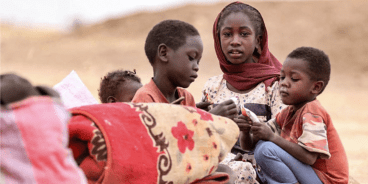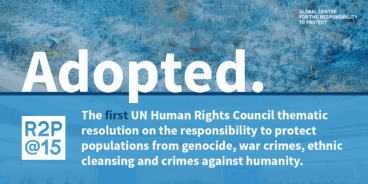
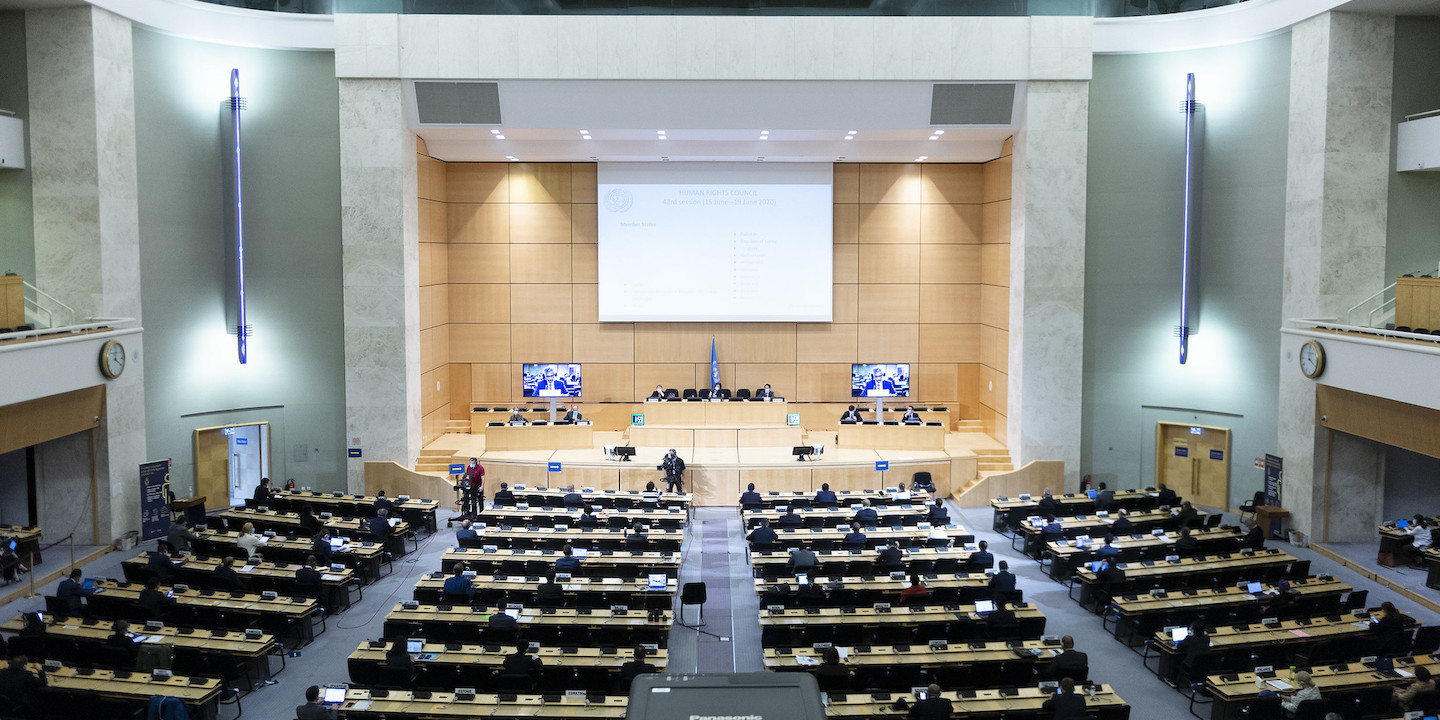
Atrocity Prevention and Outcomes of the Human Rights Council’s 44th Session
The 44th regular session of the UN Human Rights Council (HRC) was held between 30 June and 17 July 2020. As the primary international human rights body, the Human Rights Council has the capacity to prevent and respond to mass atrocity crimes, as systematic violations and abuses of human rights can be an indicator of potential genocide, war crimes, crimes against humanity or ethnic cleansing. The summary below highlights major outcomes and relevant dialogues from the 44th session as they relate to the Responsibility to Protect (R2P) populations from such crimes. As part of the session, the Netherlands delivered a statement on behalf of members of the Group of Friends of R2P. Under the leadership of Costa Rica, Liechtenstein, Morocco, Qatar, Peru and Switzerland, the HRC also adopted its first thematic resolution specifically on the Responsibility to Protect. This was the first such resolution ever to be adopted at the HRC.
RESOLUTIONS
A/HRC/44/L.8 Situation of human rights in Eritrea
The HRC welcomed the report of the Special Rapporteur on the situation of human rights in Eritrea and extended the mandate of the Special Rapporteur for one year. The HRC called upon the government of Eritrea to cooperate fully with the Special Rapporteur, including by granting access to the country. The HRC requested the Special Rapporteur present an oral update to the HRC during an interactive dialogue at its 46thsession, and to present a report to the HRC during an interactive dialogue at its 47th session and to the General Assembly at its 75th session. The HRC further requested the Office of the UN High Commissioner for Human Rights (OHCHR) to present an oral update on progress made on cooperation with the government of Eritrea and on its impact on the situation of human rights in Eritrea during the HRC’s 46th session. The resolution was adopted by a vote of 24 in favor, 10 against and 13 abstentions.
A/HRC/44/L.10 Situation of human rights in the Syrian Arab Republic
The HRC deplored the military offensive in Idlib province and surrounding areas and noted the recent findings of the Commission of Inquiry (CoI) that war crimes and crimes against humanity may have been committed during the offensive. The HRC strongly condemned continued enforced disappearances and arbitrary detentions, which are widespread in areas where the Syrian government has retaken control. The HRC demanded that the Syrian authorities and their allies facilitate – and that all other parties to the conflict do not hinder – full, timely, immediate, unrestricted and safe humanitarian access. The HRC regretted the further reduction in approved crossing points for cross-border humanitarian aid and urged the Syrian authorities to significantly improve access to prevent further unnecessary suffering and loss of life. The HRC requested the CoI prepare a report on arbitrary imprisonment and detention in Syria, to be presented to the HRC at its 46th session. The resolution demanded that “the Syrian authorities meet their responsibility to protect the Syrian population” and was adopted by a vote of 28 in favor, 2 against and 17 abstentions.
A/HRC/44/L.12 Fifteenth anniversary of the responsibility to protect populations from genocide, war crimes, ethnic cleansing and crimes against humanity, as enshrined in the World Summit Outcome of 2005
The HRC recalled the 2005 World Summit Outcome on its 15th anniversary, especially paragraphs 138 and 139 on the responsibility to protect populations from genocide, war crimes, ethnic cleansing and crimes against humanity. The HRC reiterated the responsibility of each state to protect its population and that the international community should, as appropriate, encourage and help states to exercise this responsibility and support the UN in establishing an early warning capability. The HRC further recognized the important contribution of the UN human rights system to efforts in addressing situations in which genocide, war crimes, ethnic cleansing and crimes against humanity could be committed. The HRC decided to convene an inter-sessional panel discussion to mark the 15th anniversary of R2P to exchange best practices on strengthening national policies and strategies to implement R2P. The HRC further requested OHCHR to liaise with states, the Secretary-General’s Special Adviser on R2P, treaty bodies, special procedures, regional human rights mechanisms and the Global Network of R2P Focal Points, as well as with civil society, to ensure their participation in the panel discussion. The HRC also requested OHCHR to prepare a summary report on the panel discussion and to submit it to the HRC at its 48th session and to the General Assembly. The resolution was adopted by a vote of 32 in favor, 1 against and 14 abstentions.
INTERACTIVE DIALOGUES, DEBATES AND UPRS
Country-specific
-
- Interactive Dialogue on the High Commissioner’s oral update on the human rights situation of Rohingya people
- Interactive Dialogue with the Special Rapporteur on Eritrea
- Presentation of the High Commissioner’s report on Venezuela under Item 2
- Interactive Dialogue with the Special Rapporteur on Myanmar
- Interactive Dialogue with the Commission of Inquiry on Burundi
- Interactive Dialogue with the Commission of Inquiry on the Syrian Arab Republic
- Interactive Dialogue on the High Commissioner’s report on Venezuela under Item 4
- Enhanced Interactive Dialogue on oral reports of the Sudan and OHCHR
- Enhanced Interactive Dialogue on the High Commissioner’s report on the human rights situation in the Philippines
Thematic
-
- Interactive Dialogue on the annual report of the High Commissioner
- Interactive Dialogue with the Special Representative of the Secretary General on children and armed conflict
ESTABLISHMENT AND EXTENSION OF COMMISSIONS OF INQUIRY AND SPECIAL PROCEDURES
The HRC extended the mandate of the Special Rapporteur on the situation of human rights in Eritrea for a period of one year.
Read Next

Related Content
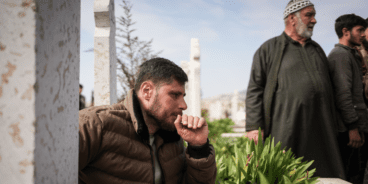
Atrocity Alert No. 430: Syria, Central African Republic and the Philippines
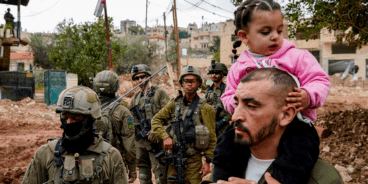
Atrocity Alert No. 428: Israel and the Occupied Palestinian Territory, Myanmar (Burma) and Ukraine
